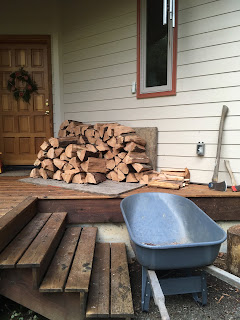Last week I had lunch with Jim Earl, a retired professor of English at the University of Oregon. I asked him how things were going at the university, where I had taught as a graduate teaching fellow and then a post-doc, 2006-2013.
I loved teaching at UO. But, it seems, things have changed.
"Teaching at a state university isn't what it used to be," Jim said with a sigh. "You and I taught during the Golden Age."
The Golden Age, it seems, is over. The emphasis is no longer on education but on jobs. Professors, for instance, are no longer student advisors. Professionals now perform that role, experts in advising students what courses to take, given that their goal, according to the new paradigm, is to get a job. "Don't waste your time with English and language courses," the experts say. "Take only what relates directly to your major." Since the drive is towards jobs, and since STEM subjects—science, technology, engineering, and math—are the job-oriented subjects, STEM majors abound. The old question, "What can you do with a degree in English?" is louder than ever and comes from the mouths of experts who don't care for what they see as fluff courses.
No surprise that the number of English majors at UO has plummeted.
The same thing is true throughout the humanities, and, according to Jim, throughout the nation.
I find this extremely distressing. For centuries the hallmark of American education has been its broad approach, an emphasis on education as something different from job training. That was the Golden Age of liberal arts state schools, which were affordable and, in many cases, provided superior education.
The Golden Age is over. STEM reigns because a STEM major means a good chance at a good job. Where will our poets come from? Where will our writers find their training, much less their inspiration? Without our history majors where will we find the depth of historical understanding so necessary for reasonable action today? We need, we desperately need, what the humanities teach us; we need compassionate social workers, tax consultants, receptionists, nonprofit board members, schoolteachers, and everyone else who works with other people. We need linguists and people who know languages. We need art of all kinds. A great nation deserves great art.
Not to overstate my case, because it's true that a science major aiming towards that great job can be a compassionate person without taking a bunch of humanities courses. But I also think of something a friend who taught chemistry at Southern Oregon University told me: that he taught Chemistry 101 always with an eye towards reaching that one person in the back of the room who had never thought of becoming a chemistry major but who now finds that she loves it. I also think of my UO student in a class on the eighteenth-century novel. She was a social science major, but she said to me, "I just love this class." When we orient students towards only their majors and emphasize education as preparation for a job, we cut off the exploratory aspect of education that opens the world to us. We give people jobs, but we limit their education.
I'm so grateful for the liberal arts education I received, first from Vanderbilt University, with its broad range of required classes, then at Cambridge University, with its tutorial system of individualized education. I am also grateful for having taught college and university classes during the Golden Age, when the emphasis was on a liberal arts education. It was a wonderful career. It was a great job. I wouldn't trade it for the world.










